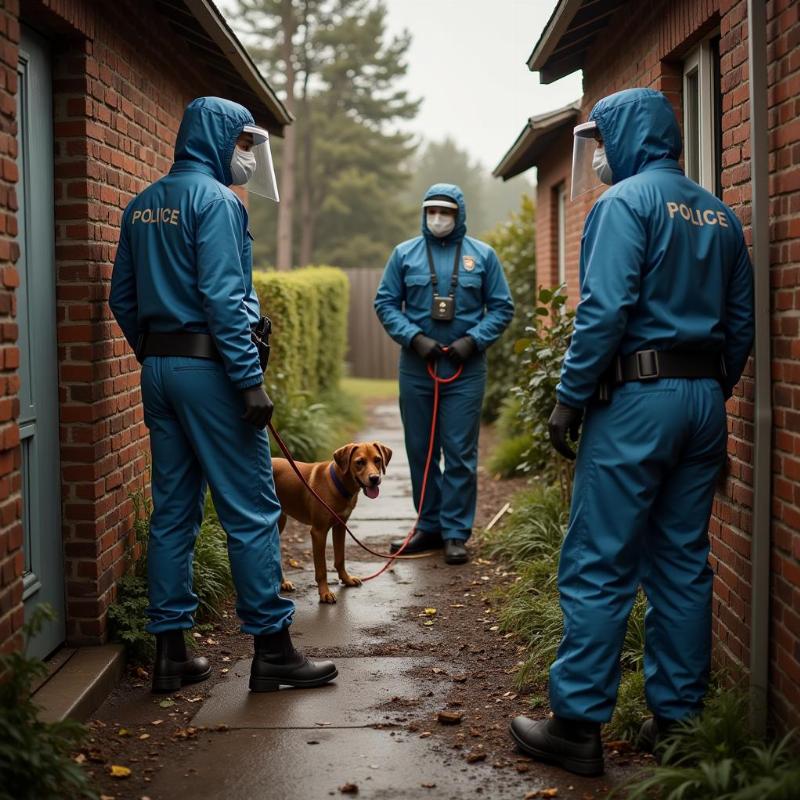120 dogs were seized from a Rochester, New York home in what authorities are describing as a severe case of animal hoarding. The dogs, a mix of small breeds, were found living in unsanitary conditions, suffering from various health issues. This incident highlights the complexities of animal hoarding, a serious problem affecting both animals and people across the US. We’ll explore the implications of such cases and discuss how responsible pet ownership and community support can prevent similar situations.
Understanding the Rochester Dog Hoarding Case
The sheer number of dogs seized—120—is staggering. This points to a deep-rooted issue of animal hoarding, a condition recognized by the American Society for the Prevention of Cruelty to Animals (ASPCA) as a complex psychological disorder. Hoarders often believe they are rescuing animals, but their inability to provide adequate care leads to neglect and suffering. The Rochester case underscores the devastating consequences of this behavior. The dogs’ living conditions were reportedly deplorable, raising concerns about their physical and mental well-being.
The Impact on the Dogs and the Community
The rescued dogs face a long road to recovery. Many require extensive veterinary care for malnutrition, parasites, and other health issues. Furthermore, the emotional trauma of living in such conditions can leave lasting scars. Shelters and rescue organizations are now tasked with providing for these dogs’ immediate needs and finding them suitable homes. Such a large influx of animals can strain local resources, emphasizing the need for community support in these situations.
Preventing Future Hoarding Situations
Preventing animal hoarding requires a multifaceted approach. Education is crucial. People need to understand the signs of animal hoarding and how to report suspected cases. Early intervention is key to preventing situations from escalating to the extent seen in Rochester. Supporting local animal shelters and rescue organizations is also essential. These organizations play a critical role in providing care for rescued animals and educating the community about responsible pet ownership. Strengthening animal welfare laws and enforcement can also deter potential hoarders.
 Animal Welfare Officers Investigating
Animal Welfare Officers Investigating
Recognizing the Signs of Animal Hoarding
Knowing the signs of animal hoarding can help prevent tragedies. These signs can include a strong odor of ammonia, an excessive number of animals, and animals in poor health. If you suspect animal hoarding, contact your local animal control agency or the ASPCA.
Conclusion
The seizure of 120 dogs from a Rochester home serves as a stark reminder of the devastating consequences of animal hoarding. By understanding the issue, supporting local animal welfare organizations, and being vigilant about reporting suspected cases, we can help prevent similar situations and ensure the well-being of animals in our communities. This incident highlights the importance of responsible pet ownership and the need for community involvement in protecting animals from neglect.
FAQ
- What is animal hoarding? Animal hoarding is a complex psychological disorder characterized by the accumulation of a large number of animals and the inability to provide adequate care for them.
- How can I report suspected animal hoarding? Contact your local animal control agency or the ASPCA.
- How can I help animals rescued from hoarding situations? You can donate to or volunteer at local animal shelters and rescue organizations.
- What are the signs of animal hoarding? Signs may include a strong ammonia smell, an excessive number of animals, and animals in poor health.
- What happens to the animals seized in hoarding cases? They are typically taken to shelters where they receive medical care and are eventually put up for adoption.
Beautdogs.us is your premier destination for all things dog-related in the US. We offer expert advice on dog breeds, care, and products. Whether you’re a seasoned dog owner or just starting out, Beautdogs.us provides trusted resources to help you navigate the joys and responsibilities of dog ownership. Connect with us for personalized guidance and support. Email: [email protected], Phone: +1 501-555-7529. Visit Beautdogs.us today!